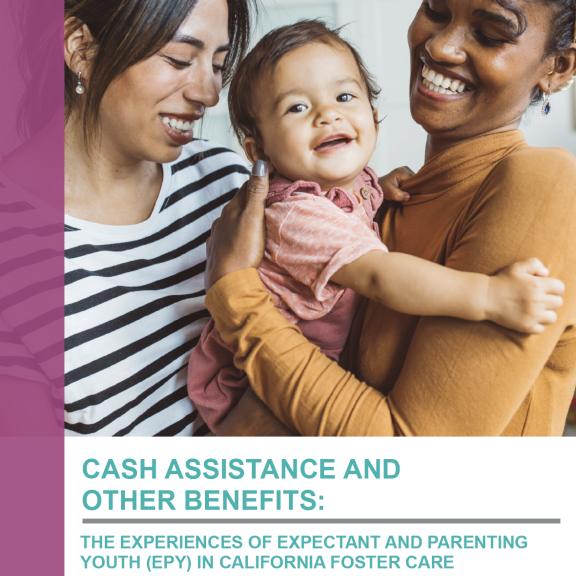Cash Benefits and Other Assistance: The Experiences of Expectant and Parenting Youth in California Foster Care
Expectant and parenting youth (EPY) with current or prior involvement in foster care experience multiple educational, health, and financial stressors. As EPY navigate the transition into adulthood and parenting, they often do so with reduced family support and greater systemic and financial challenges, making it harder for them to achieve what they want for themselves and their children. While support programs do exist, young parents have reported challenges accessing existing benefit programs.
In multiple studies across the U.S., cash transfer programs have shown promise as a strategy to mitigate the limitations of traditional benefit programs and support pregnant and newly parenting people. Most of these studies, however, have focused on the general population. The Reproductive Health Equity Project (RHEP) for Foster Youth sought to know whether minor and young adult parents, particularly those with current or former foster care experience, would benefit similarly from cash transfer programs.
RHEP worked to assess how EPY with foster care experience navigate financial benefit programs, especially those offering cash assistance, and determine whether a larger study of benefit and cash transfer programs would be of merit. This issue brief describes the study and summarizes its results. The study contributes to a growing evidence base on cash assistance by examining how EPY can leverage benefits to navigate interpersonal relationships and systems such as housing and healthcare, how benefits provide agency to EPY to invest in their family’s future, and how administrative processes impact uptake.
